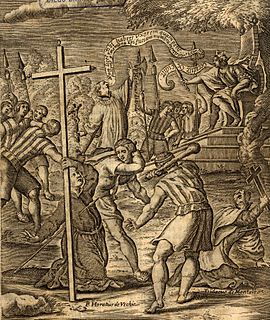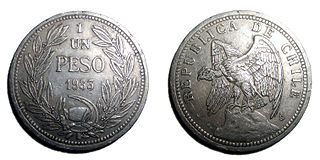 W
WThe Arauco War was a long-running conflict between colonial Spaniards and the Mapuche people, mostly fought in the Araucanía. The conflict begun at first as a reaction to the Spanish conquest attempt establishing cities and forcing Mapuches into servitude. It subsequently evolved over time into phases, drawn-out sieges, slave-hunting expeditions, pillaging raids, punitive expeditions, and renewed Spanish attempts to secure lost territories. Abduction of women and war rape was common on both sides.
 W
WLa Araucana is a 16th-century epic poem in Spanish about the Spanish Conquest of Chile by Alonso de Ercilla. It was considered the national epic of the Captaincy General of Chile and one of the most important works of the Spanish Golden Age.
 W
WThe Army of Arauco was a professional army in the service of the kings of Spain that was based in Spanish-Mapuche frontier, south-central Chile, during the 16th to 19th centuries. It was notable for being a rare example of a standing army in the Americas. The army was established after the disastrous Destruction of the Seven Cities (1598–1604) to fight in the Arauco War against anti-Spanish Mapuche coalitions. The army was financed by silver from Potosí, in a payment called Real Situado.
 W
WThe Defensive War was a strategy and phase in the Arauco War between Spain and independent Mapuches. The idea of the Defensive War was conceived by Jesuit father Luis de Valdivia who sought to diminish hostilities, establish a clear frontier and increase missionary work among the Mapuches. Luis de Valdivia believed the Mapuches could be voluntarily converted to Christianity only if there was peace.
 W
WThe Destruction of the Seven Cities is a term used in Chilean historiography to refer to the destruction or abandonment of seven major Spanish outposts in southern Chile around 1600 caused by the Mapuche and Huilliche uprising of 1598. The Destruction of the Seven Cities is in traditional historiography the defining event that marks the end of the Conquest period and the beginning of the proper colonial period.
 W
WThe Occupation of Araucanía or Pacification of Araucanía (1861–1883) was a series of military campaigns, agreements and penetrations by the Chilean army and settlers into Mapuche territory which led to the incorporation of Araucanía into Chilean national territory. Pacification of Araucanía was the expression used by the Chilean authorities for this process. The conflict was concurrent with Argentine campaigns against the Mapuche (1878–1885) and Chile's wars with Spain (1865–1866) and with Peru and Bolivia (1879–1883).
 W
WThe Real Situado was an annual payment of silver from the Viceroyalty of Peru to finance the Spanish Army of Arauco that as result of the Arauco War. Most of the silver came from Potosí in present-day Bolivia.